Listen to Your Thyroid
One powerful gland controls nearly every aspect of your health. We take a look at how the thyroid works, and how to keep it healthy and functioning properly
Get full access to Outside Learn, our online education hub featuring in-depth nutrition, fitness and adventure courses, and more than 2,000 instructional videos when you sign up for Outside+..
Most of us never pay much attention to thyroid health until we begin to experience symptoms of its malfunction — your metabolism slows down, energy levels plunge, you lose muscle mass even while gaining weight, your hair begins to break and thin out, plus you’re cold all the time. It’s a veritable laundry list of health issues you definitely don’t want to experience. Before you fly into a panic, let’s take a look at the
thyroid and the critical role it plays in your health.
Thyroid 101
The thyroid is a small, butterfly-shaped gland located just below the Adam’s apple in your neck that controls your body’s growth and metabolism. It secretes the hormones triiodothyronine (T3) and thyroxine (T4), which affect all the body processes that use energy, including breathing, blood circulation, body temperature, muscle control, digestion, bowel movements, and even brain function. This important gland works together with the pituitary and hypothalamus as part of a feedback loop called the hypothalamic-pituitary-thyroid axis (HPT axis).
Secretion of T3 and T4 is stimulated by hormones released by the hypothalamus and pituitary glands. The former releases thyrotropin-releasing hormone (TRH), while the latter releases thyroid stimulating hormone (TSH). If the thyroid is not operating effectively, TRH and TSH release increases in order to help stimulate thyroid function. In the event of some of the grave symptoms noted above, a blood test measures TSH to evaluate health and functionality of the thyroid. High or extremely low TSH readings mean the gland is sick. When you experience a problem with your thyroid, it can result in various maladies all over your body. Even modest changes in thyroid secretion (in either direction) will yield major health problems.
Common Problems & Symptoms
There are two types of thyroid issues: Hypothyroidism (underactive function) occurs when the thyroid doesn’t produce enough thyroid hormones. Hyperthyroidism (overactive function) is when the gland produces too much of the thyroid hormones. The former is more common. According to the National Institutes of Health (NIH), hypothyroidism affects about 5 percent of the U.S. population, while
hyperthyroidism affects approximately
1 percent. This translates to about 20 million Americans with some form of thyroid disease during their lifetime — including both men and women. However, women are five to eight times more likely to have thyroid issues than men.
There are several known causes of hypothyroidism, including thyroid disease and inflammation, autoimmune disorders, and iodine deficiency — although the latter has been virtually wiped out in the U.S. due to the use of iodized salt. The origins of hyperthyroidism include Graves’ disease, thyroid gland inflammation, and benign thyroid tumors.
Unless you undergo regular blood screenings as part of another medical condition, such as diabetes or cardiovascular disease, you may not know you have thyroid issues until you start to experience various declining health symptoms. The first thing you might notice is a change in bodyweight (either creeping gains or losses), as well as intolerance to cold, fatigue, and alterations in menstrual cycle. You could also experience muscle weakness, dry or brittle hair (or hair loss), or sleep disturbances. Typically, these maladies show themselves in a sequential manner, whereby you experience one first, followed by more and more. As thyroid function declines, your metabolism is adversely affected in an exponential manner.
Specific symptoms and long-term potential maladies associated with low thyroid secretions include weaker heartbeat and shortness of breath while exercising. Increases in cholesterol levels, muscle weakness, and digestive issues such as bloating are also indicative of hypothyroidism. Fatigue, weight gain, and cold intolerance are additional signs.
On the opposite side, issues directly related to hyperthyroidism include unexplained weight loss, especially related to muscle tissue, as well as muscle weakness. Sensitivity to heat and increased body temperature are additional signs, as are irritability and irrational nervousness. Swelling in the neck is a critical indication of the enlarged thyroid gland that should be examined immediately.
If you are experiencing any of these symptoms, consult your doctor and request a TSH blood test. This exam will help rule out potential thyroid issues, or positively identify any disease or condition you may be suffering from. The normal TSH range is 0.4 to 4.0 mU/L. If your reading is above this range, especially if it’s quite high, you probably are dealing with hypothyroidism. Low or nonexistent levels of TSH indicate hyperthyroidism. Even if your TSH readings are normal but you continue to experience symptoms of thyroid malfunction, ask your doctor for a specific T4 test. The normal range is 5 to 13 mcg/dL, so if your numbers are below 5 you should be treated for hypothyroidism; readings higher than 13 indicate hyperthyroidism.
Exercise for Hypothyroidism
We all know exercise is good for you, but experts point to specific fitness regimes to relieve hypothyroidism symptoms, while improving cardiovascular health and muscle tone. The most important program is aerobic exercise. Participating in activities such as running, walking briskly, or playing sports like basketball (that support cardio fitness) will improve heart function and circulation and improve efficiency of energy use. These activities also improve mood, which helps battle depression and fatigue associated with hypothyroidism.
Building muscle boosts your body’s resting metabolic rate, helping to control weight gain and fat deposits — symptoms typically accompanying thyroid malfunction. Strength training activities promote anabolic growth and should be scheduled 3 to 5 days per week for maximum benefit.
On the flip side, however, participation in lower-impact activities such as yoga and Pilates is effective for toning muscles and light strengthening without adverse effects on joints. Because joint pain is common among those suffering from hypothyroidism, strenuous weight training or sports should be balanced with less-stressful activities on an ongoing basis. From a treatment standpoint, acupuncture and meditation are noted to improve symptoms of thyroid problems.
Investing in Thyroid Health
To keep your thyroid healthy and avoid issues associated with its malfunction, it’s important to eat a balanced diet rich in fruits, vegetables, and unprocessed foods, especially those rich in antioxidants, plus exercise regularly. Stress relief and complementary health treatments also contribute to thyroid health. To get the most out of your metabolism and keep your thyroid functioning properly and efficiently, take some specific steps.
If you are not currently experiencing thyroid issues, keep your iodine consumption consistent by eating various dark green vegetables and seaweed. Kelp, kale, broccoli, and
spinach are all naturally high in this mineral, which your body needs to create T3 and T4 hormones. When using supplements, don’t exceed 400 mcg per day. However, if you are currently taking Synthroid or another medication for hypothyroidism, check with your doctor before using such products, as high iodine levels can adversely affect their uptake.
Other important minerals include selenium and zinc because of their influence on thyroid synthesis and conversion of thyroid hormone T4 to T3. A wholesome diet of seafood such as salmon, sardines, shrimp, and scallops will supply sufficient selenium, as will chicken, beef, turkey, and shiitake mushrooms. Or you can take 100 to 200 mcg per day in supplemental form. Zinc can be found in shellfish, meat, legumes, and nuts, or supplement
with about 30 mg daily.
The amino acid tyrosine is involved with thyroid hormone production and conversion, so it’s an important addition to your diet. You can obtain adequate amounts with protein consumption equaling 20 to 30 percent of your daily diet, or you can supplement with 1 to 2 g daily taken in smaller, multiple doses.
Vitamin B is also important because the various Bs have many interactions with thyroid function and hormone regulation. It’s always best to eat foods rich in all B vitamins such as nuts, yogurt, fish, eggs, seeds, and meat. Use of a B-complex nutritional supplement each day can also help; it should contain approximately 1.1 mg B1, 1.1 mg B2, 14 mg B3, 5 mg B5, 1.3 mg B6, 30 mcg biotin, 400 mcg folic acid and 2.4 mcg B12.
Vitamin D deficiency has a strong association with hypothyroidism, according to the International Journal of Health Science, so be sure to consume fortified milk, yogurt, or orange juice daily. But food sources might not provide adequate D, so supplement with D3 in the amount of at least 400 to 800 mcg daily.
Since thyroid health is related to microbes in the gut, probiotics may be an effective way to promote ongoing thyroid health while not interfering with any prescribed medications. The key to gut health is using probiotic supplements with a wide range of different strains, and changing them on an occasional basis. Eating yogurt and fermented foods also provides healthy probiotics.
One final area of supplementation involves alternative medicinal herbs. Some plant extracts, such as the adaptogen ashwagandha (Withania somnifera), coleus (Coleus forskohlii), gotu kola (Centella asiatica), and guggul (Commiphora mukul), may ease symptoms of hypothyroidism, although evidence supporting their beneficial effects is limited.
Always check with your physician before trying any new supplement
or changing your eating habits, and ensure your thyroid hormone levels are checked regularly via blood tests. In addition, many experts advise avoiding iodine-rich foods and iron and calcium supplements if you’re taking thyroid medication because of their potential deleterious effect on T3 and T4 levels or medicine absorption. Also avoid soy, which contains phytoestrogens that adversely affect thyroid hormone production. Finally, use of caffeine, tobacco, and alcohol can also adversely affect thyroid medicine absorption.
Is Your Thyroid Operating Efficiently?
Symptoms of Hypothyroidism
- Fatigue
- Frequent, heavy menstrual periods
- Forgetfulness
- Weight gain
- Dry, coarse skin and hair
- Hoarse voice
- Intolerance to cold
Symptoms of Hyperthyroidism
- Irritability/nervousness
- Muscle weakness/tremors
- Infrequent, scant menstrual periods
- Weight loss
- Sleep disturbances
- Enlarged thyroid gland
- Vision problems or eye irritation
- Heat sensitivity
Feed Your Thyroid
Vitamins and minerals can help improve a dysfunctional thyroid. Specific nutrients that may be beneficial include the following:
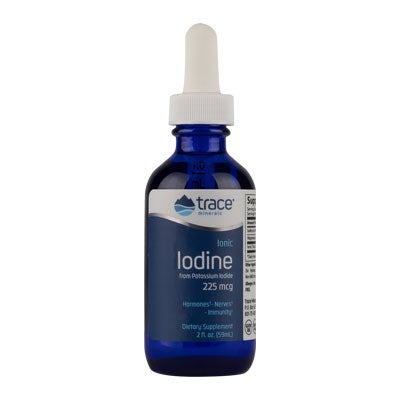
Iodine
When supplementing with iodine, don’t take more than 400 mcg per day.
Try: Trace Minerals Research Iodine 225 mcg
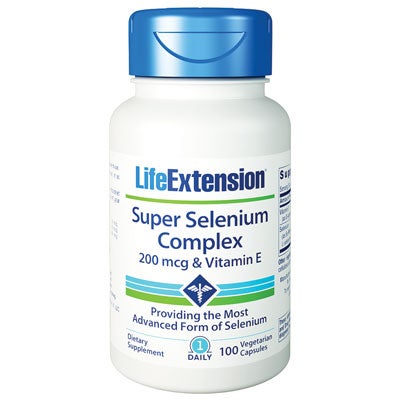
Selenium
You can take 100 to 200 mcg per day of selenium in supplemental form.
Try: Life Extension Super Selenium Complex 200 mcg & Vitamin E
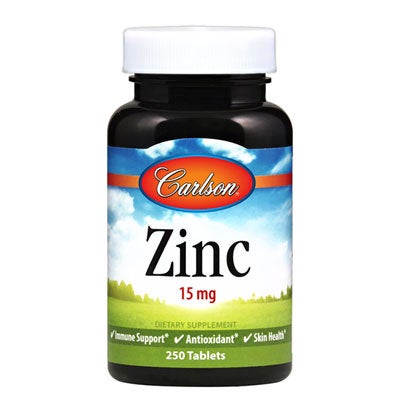
Zinc
When supplementing with zinc, you can take up to 30 mg daily.
Try: Carlson Zinc 15 mg
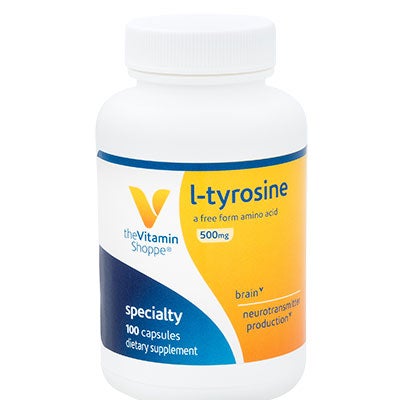
Tyrosine
Supplement with 1 to 2 g daily, taken in smaller multiple doses.
Try: The Vitamin Shoppe L-Tyrosine 500 mg
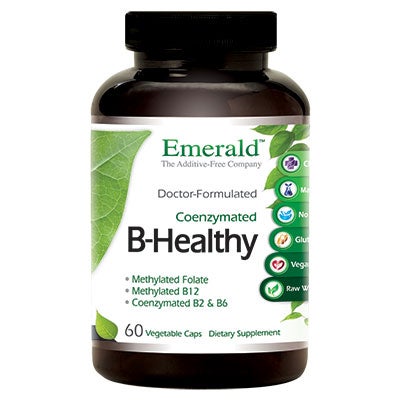
Vitamin B
A daily B-complex can help with thyroid regulation.
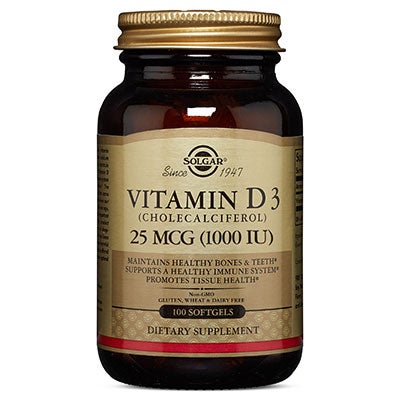
Vitamin D
Supplement with D3 in the amount of at least 400 to 800 mcg daily.
Try: Solgar Vitamin D3 1,000 IU

Probiotics
Keep your gut healthy with a supplement that contains a wide range of different strains.
Try: ProBioCare Probiotic 35 Billion
These products can be found in Vitamin Shoppe stores